

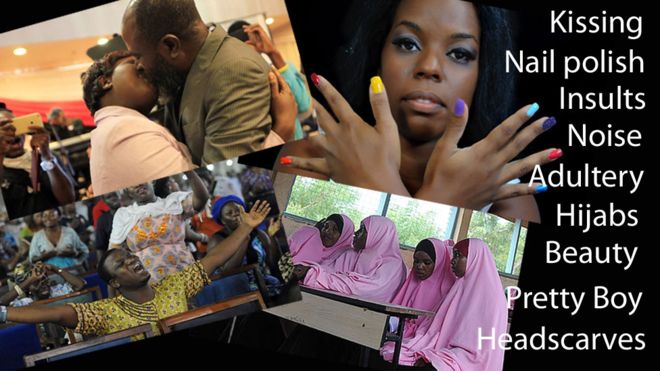

AFRICA has contributed its fair share of captivating headlines this year, but submerged in the coverage of migrations and mass killings, Nigerian novelist and journalist Adaobi Tricia Nwaubani picks out some of the quirkier stories you might just have missed.
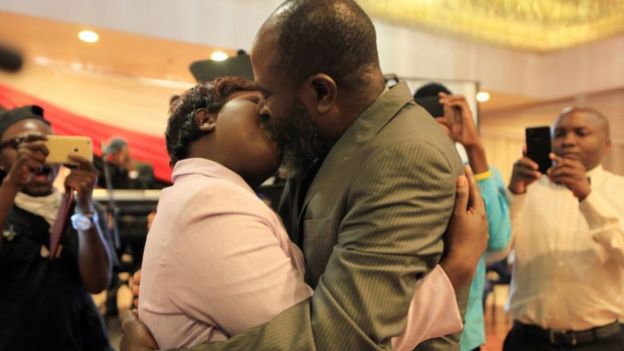
For Zimbabwean MP Joseph Chinotimba, a loyal supporter of President Robert Mugabe, 2016 began with romance.
The 66-year-old war veteran and his wife Vimbai kissed their way into the Book of African Records, after scooping the top prize in a competition organised as part of Valentine’s Day celebrations.
The couple, who have been married for eight years, won “The Longest Kiss in Africa Challenge“, locking lips for a record 10 minutes and 17 seconds, beating the previous African record by five minutes and 17 seconds.
Though the Chinotimbas’ passion didn’t quite match that of the world record holders from Thailand, who kissed for 58 hours, 35 minutes and 58 seconds.
Later in the year, one Nigerian MP gave an example of just how far women still have to go in the battle against abusive language and gender equality.
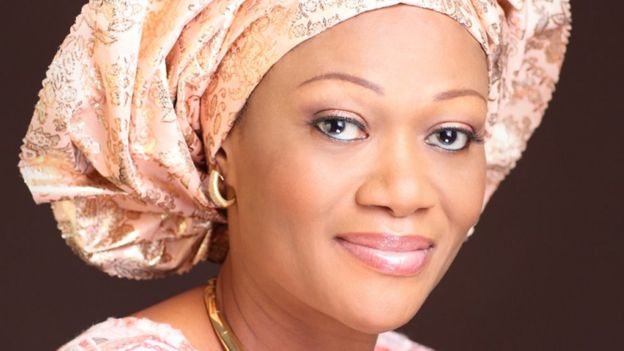 Oluremi Tinubu became a senator in 2011
Oluremi Tinubu became a senator in 2011
After a row during a closed door session of the Senate in July, Dino Melaye allegedly threatened to beat up and “impregnate” a female colleague, Oluremi Tinubu.
Mr Melaye later denied saying this, releasing a statement that shocked some commentators: “Biologically, it is even impossible to impregnate Tinubu because she has arrived at menopause.”
According to Nigeria’s Punch newspaper, Ms Tinubu said she would forgive the comments, but would remain defiant in public life in socially conservative country.
“I am not championing a cause for women. I am only standing in my space and if my space is encroached upon, I have to fight back.
“Rosa Parks wasn’t an activist; she just decided to sit in her space and not give up her space anybody in a bus. And that sent a message.”
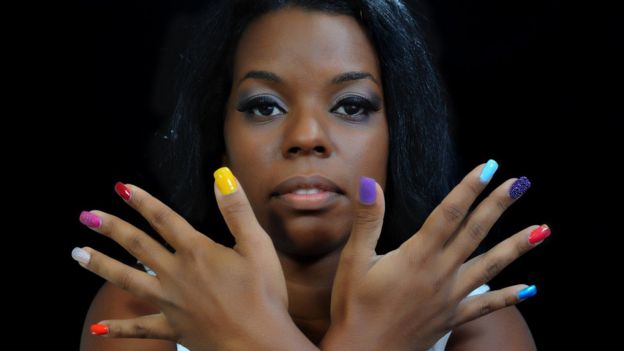 I
IDespite the various ways in which women are denied basic human rights across Africa, they are allowed to vote.
But during past elections in Zambia, women wearing nail varnish were not allowed to cast their ballot unless they first wiped their fingernails clean.
Officials complained that the nail varnish prevented them from applying the indelible ink correctly.
However, the situation changed this August when Zambia went to the polls in an election that led to a fresh term for President Edgar Lungu.
A few days before the votes were cast, the country’s electoral commission posted on social media, saying women with “painted nails and/or false nails” could exercise their democratic right.
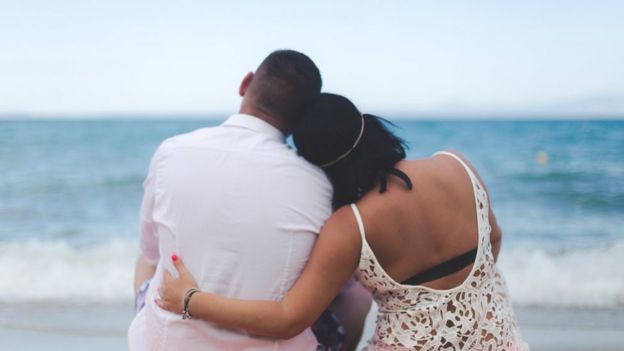
In a peculiar move towards gender equality, Cameroon’s parliament in June debated a new law which would see men who commit adultery sent to jail.
Women in the country already faced being jailed for between two to six months for having sexual relations outside marriage.
The law, which had the backing of President Paul Biya’s party, was approved, and men in the country now face up to six years’ incarceration for adultery, as well as a fine of up to $160 (£130).
“Men having children out of wedlock should be punished because that is evidence of adultery,” one MP, Tomaino Ndam Njoya, is reported to have said during the debate.
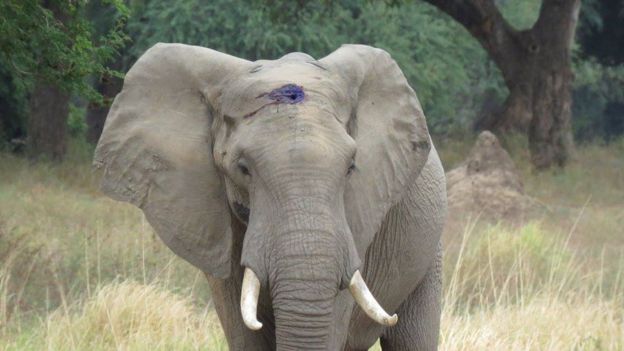
Cecil the lion is gone from this world and probably from many of our minds, but an elephant in Zimbabwe suspected to have been targeted by poachers was not so keen to follow suit.
Nicknamed “Pretty Boy”, the 25-year-old animal lived with a bullet in his head for between three and six weeks, before being treated by veterinarians in Mana Pools National Park in June.
“We think he was shot outside of the park and came into the park for refuge,” said Lisa Marabini, one of the team from Aware Trust Zimbabwe, who cleaned Pretty Boy’s wounds but judged it safer to leave the bullet in place.
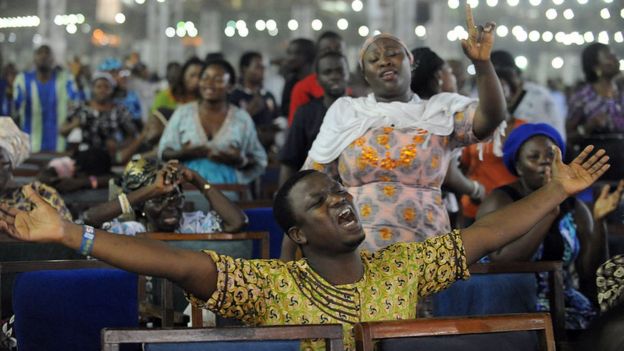
It would come as no surprise to learn that a group of people you saw chatting boisterously and laughing exuberantly at an international airport was made up of Nigerians.
Whether it is in conversation or in parties or in appearance, the citizens of Africa’s most populous country are usually happy to be loud.
But, in June, the government of Lagos State decided that it had had enough of the loud singing in Christian congregations and the Muslim call to prayer, shutting down 70 churches and 20 mosques accused of being too noisy in the commercial city.
Though with more than 20 million inhabitants in the city, the task of policing all the hundreds of thousands of churches and mosques could take years.
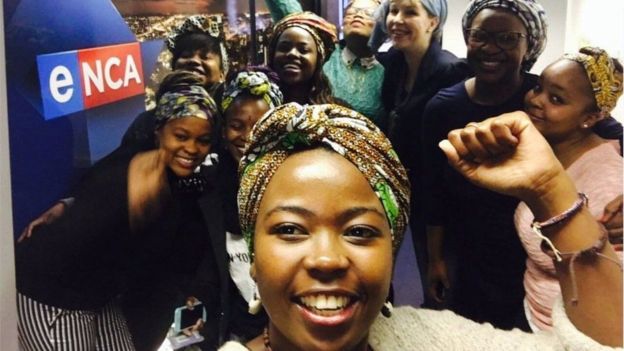 Nontobeko Sibisi (C) received widespread support from colleagues and social media
Nontobeko Sibisi (C) received widespread support from colleagues and social mediaWomen in South Africa seemed to spend quite a bit of time this year protesting about what goes on their heads.
In addition to the well-publicised demonstrations about what hairstyles should be allowed in the country’s schools, there was also the lesser-known debate about the “doek”, or headscarf, in the corporate world, after it emerged that the story of a news reporter for ENCA, an independent news channel, had been taken off air because she filmed it wearing a doek.
Following the social media storm that ensued, the channel, while explaining that its dress code does not allow on-air journalists to wear headgear to work, said it would review that policy and had “zero-tolerance” towards racism.
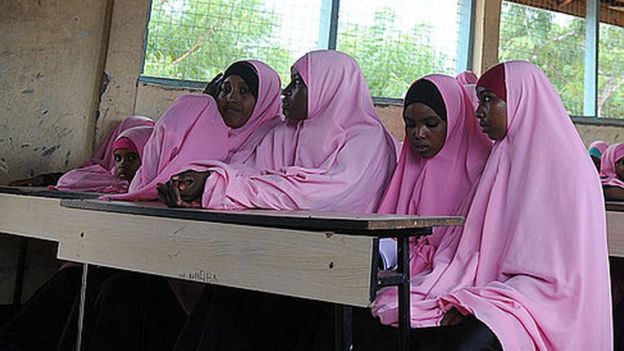
But for hijab-wearers it has been a more positive year, given a spate of bannings across the continent in 2015.
Separate courts in Kenya and Nigeria ruled that schools, even those funded by Christian churches, could not ban Muslim girls from wearing them as part of their uniforms.
Although in Nigeria’s Osun state it has led to a war of the robes, with some Christian students turning up wearing church clothes – such as choir gowns – over their school uniforms.
And after Zimbabwe started the year with a kissing competition, Kenya rounded it off with a beauty pageant for people with albinism.
Jairus Ong’etta, who went on to be crowned Mr Albinism, reportedly said during a performance: “It will always remain black boards need white chalk, white bible pages – black inscriptions.
“So white in Kenya doesn’t just stand for peace, it means a people, a face.” bbc.com
